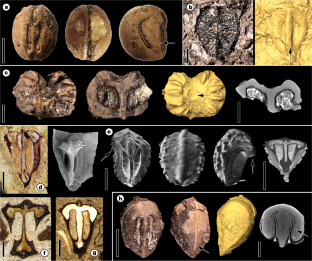2024-07-01 ミシガン大学
<関連情報>
- https://news.umich.edu/the-grapes-that-give-us-wine-likely-originated-in-the-new-world-60-million-years-ago/
- https://www.nature.com/articles/s41477-024-01717-9
新生代のブドウ科植物の種子から、新熱帯地域における絶滅と拡散の深い歴史が明らかになる Cenozoic seeds of Vitaceae reveal a deep history of extinction and dispersal in the Neotropics
Fabiany Herrera,Mónica R. Carvalho,Gregory W. Stull,Carlos Jaramillo & Steven R. Manchester
Nature Plants Published:01 July 2024
DOI:https://doi.org/10.1038/s41477-024-01717-9

Abstract
The remarkably diverse plant communities of the Neotropics are the result of diversification driven by multiple biotic (for example, speciation, extinction and dispersal) and abiotic (for example, climatic and tectonic) processes. However, in the absence of a well-preserved, thoroughly sampled and critically assessed fossil record, the associated processes of dispersal and extinction are poorly understood. We report an exceptional case study documenting patterns of extinction in the grape family (Vitaceae Juss.) on the basis of fossil seeds discovered in four Neotropical palaeofloras dated between 60 and 19 Ma. These include a new species that provides the earliest evidence of Vitaceae in the Western Hemisphere. Eight additional species reveal the former presence of major clades of the family that are currently absent from the Neotropics and elucidate previously unknown dispersal events. Our results indicate that regional extinction and dispersal have substantially impacted the evolutionary history of Vitaceae in the Neotropics. They also suggest that while the Neotropics have been dynamic centres of diversification through the Cenozoic, extant Neotropical botanical diversity has also been shaped by extensive extinction over the past 66 million years.


